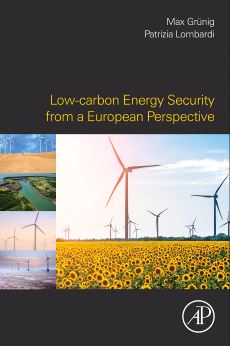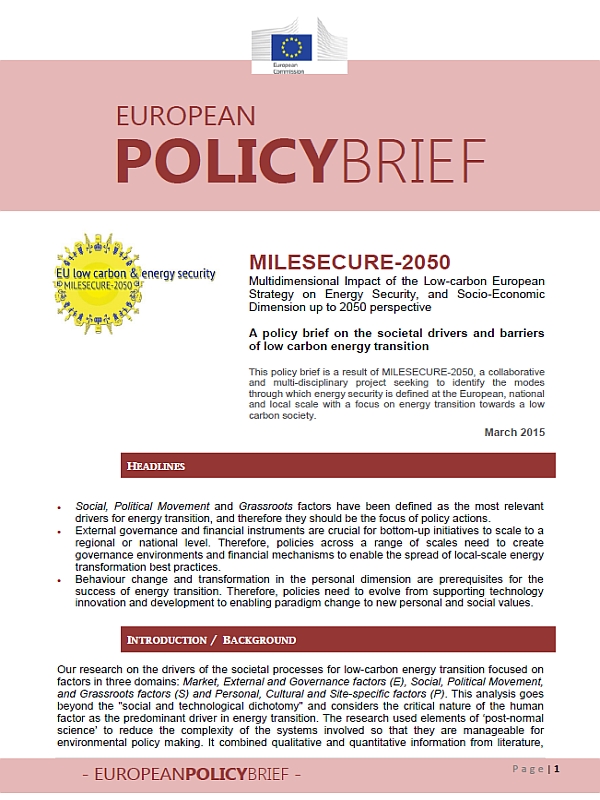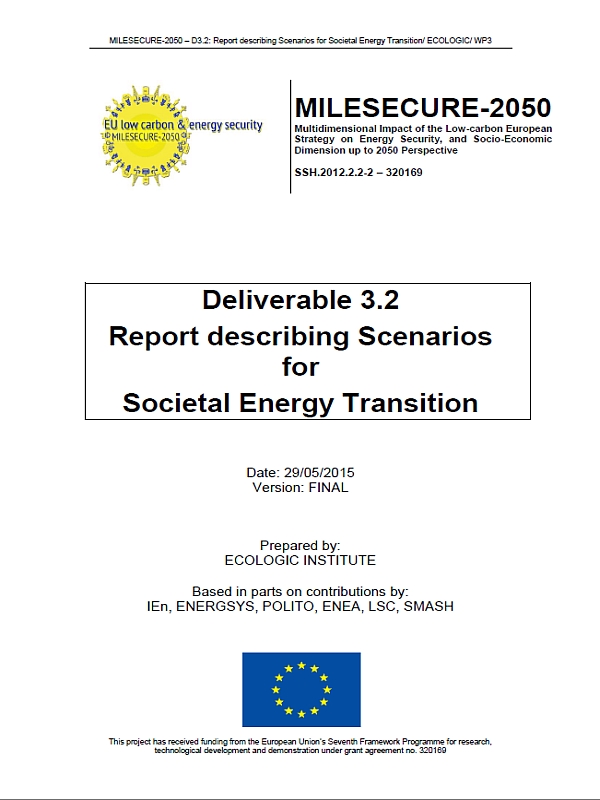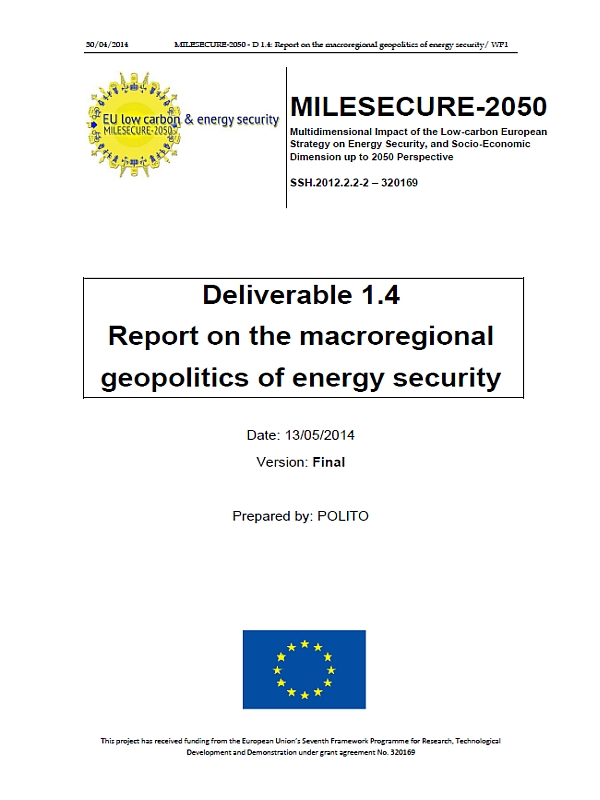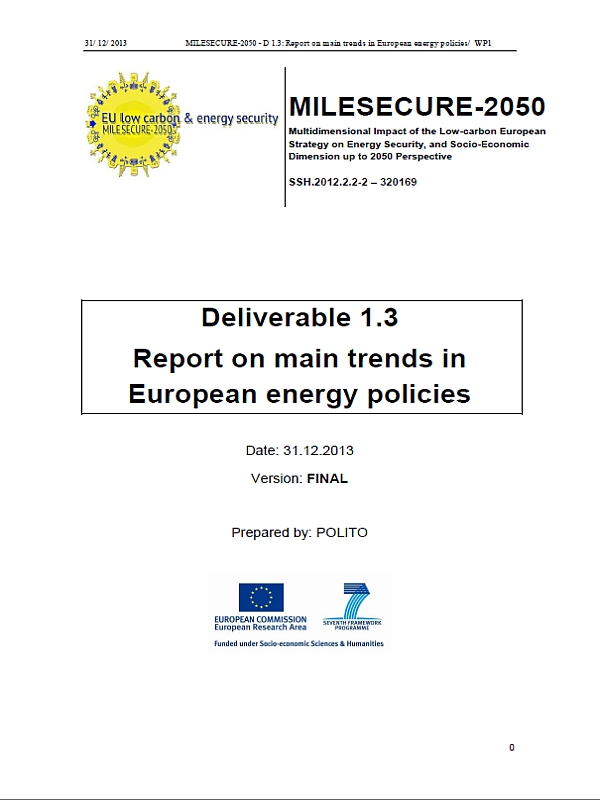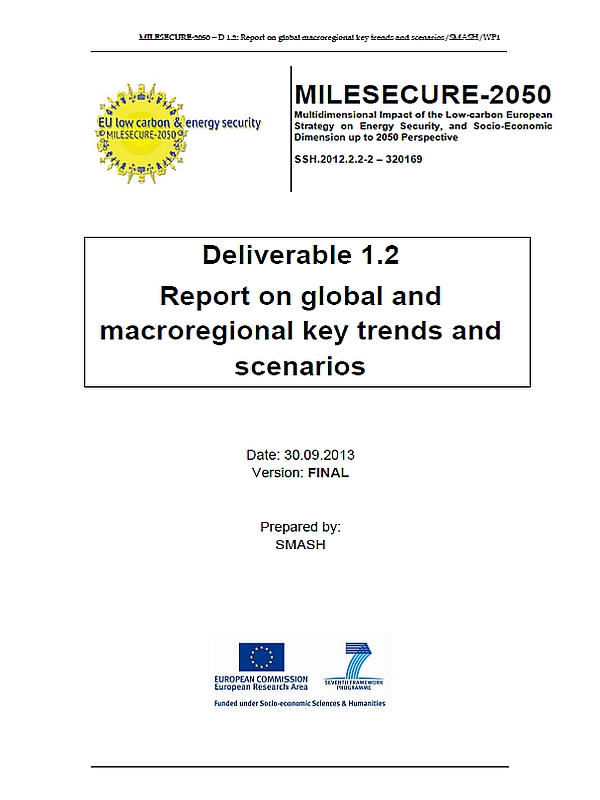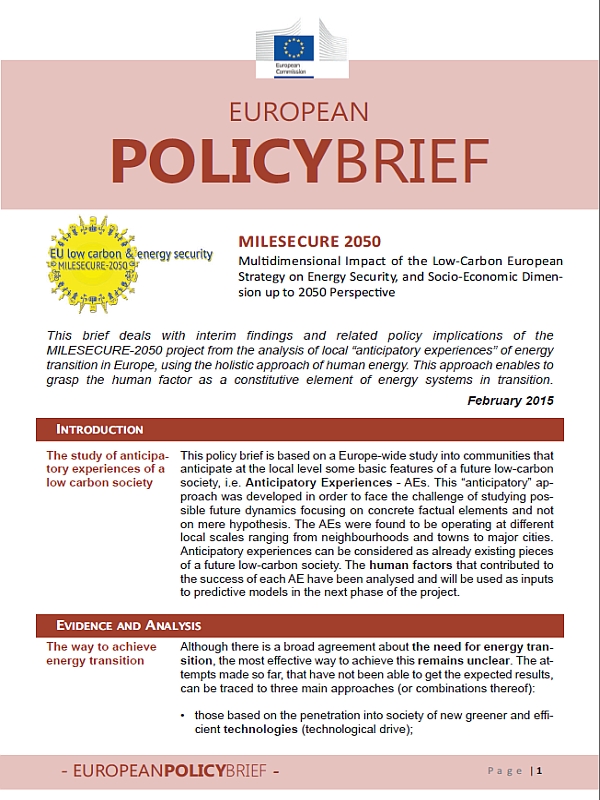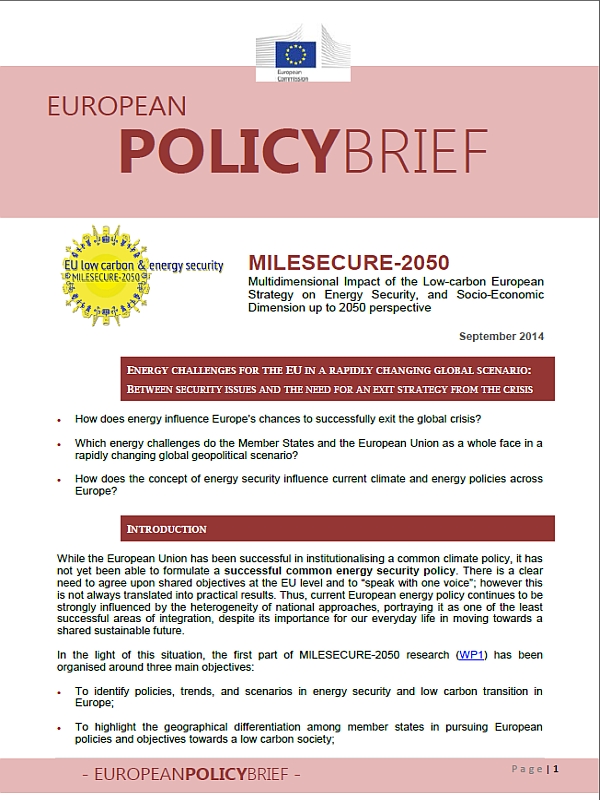
Transition towards Low-Carbon Energy Security (MILESECURE 2050)
- Project
- Research Program
- Duration
-
-
MILESECURE 2050 explores and evaluates the multidimensional process leading to European low-carbon energy security. Taking a perspective to 2050, the project will increase knowledge about the drivers of and barriers to societal and individual transition processes as well as develop governance approaches for low-carbon energy security.
The transition towards a low carbon economy and society must be considered as a process that it is not only the result of intentional actions, but also the interaction of multiple unintended factors. Indeed, energy transition affects the lives of all individuals, as energy is essential to keep warm, provide lighting and pump water. MILESECURE-2050 takes the approach that multiple interrelated and co-evolving perspectives (environmental, geopolitical, lifestyle and cultural, political, technological, economic and combined) must be examined to explain possible modes for societal transition.Thus, MILESECURE 2050 seeks to define multi-scale scenarios that incorporate inter alia behavioural and intuitional aspects both within and outside the EU and model these scenarios to assess their impacts across Member States as well as the level of distribution of social and geographical benefits and costs. Results will be used to develop policy options for improving governance related to energy transition processes at multiple levels of society.
Within this context, this study aims to answer several key research questions regarding:
- The level of vulnerability related to energy of EU Member States, both collectively and individually, to possible events and impacts in the global economy.
- How well EU individual Member States are positioned to transition to a low-carbon economy and become energy secure.
- How complex societal trends, policies, economic developments, and natural events across a variety of Members States and cultures interact to enhance or reduce energy security.
- The optimal mix of political, societal, economic and other conditions to most efficiently and effectively facilitate the transition to a low-carbon economy and enhance energy security across all Member States.
The project involves six key work packages to achieve its goal. The first work package explores policies, trends and scenarios concerning energy security and low carbon transition in Europe from a top-down perspective. The second work package identifies societal conditions that facilitate (or hinder) a transition to a low-carbon society (i.e., a bottom up perspective). Ecologic Institute leads the third work package, which aims to define significant factors that influence the transition process of societies and to identify relevant options to stimulate societal change towards low-carbon and energy security strategies, employing focus groups and expert interviews. The fourth work package integrates the results of work packages one, two and three by modelling the multi-scale scenarios and assessing the impacts. The fifth work package will be used to define policy options for improving the governance of energy transition, while work package six ensures the effective communication and dissemination of the results across policy and science communities.
MILESECURE 2050 is led by Politecnico Di Torino and is funded by the European Commission’s FP-7 Programme.
On 17 September 2014, the Research for a Post-Carbon Future conference explored ways to transform challenges into opportunities and help propel the EU forward towards a more sustainable future. A summary can be found here.




